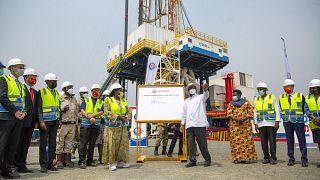Business Africa
Uganda’s ambitions of joining the oil producer’s club almost entirely rest on a pipeline being built between the oil fields in the Lake Albert region and the Tanzanian port of Tanga on the east African coast.
Officially called the East African Crude Oil Pipeline (EACOP), the facility, the world’s longest heated pipeline - will move 230,000 barrels of oil per day.
However, the project has been the target of climate activists who say it is an environmental disaster waiting to happen.
Their campaign has seen nearly a dozen major lenders and insurers pull out or decline to commit funds to the pipeline, estimated to cost around $5 billion.
The reluctance by banks has set off discomfort and frustration in Kampala, with President Yoweri Museveni calling the West “shallow and egocentric” in a tirade against a European parliament resolution criticizing the pipeline on September 17.
Despite the project’s slow pace, Kampala insists it is on course to pump first oil by 2025.
Last month, the Islamic Development Bank announced that it would commit $100 million to fund the pipeline’s construction.
France’s Total Energies is the pipeline’s biggest shareholder with 62% stake. Uganda and Tanzania both hold 15% each. Chinese oil major CNOOC has an 8% stake.
Museveni has threatened to press ahead without Total if the French oil major obeyed the EU’s reservations on the project.
Uganda also seeks to commercialize its oil by building a 60,000-barrel per day refinery at Kabaale, estimated to cost $4 billion.
The east African country’s oil reserves are estimated at 6.4 billion barrels but only 1.4 billion are recoverable.
Africa digital transition
Digital infrastructure, including broadband, mobile telecom and internet, is at the heart of the digital economy.
An estimated 900 million people are still not connected to the internet across the continent; for those who are connected, connectivity prices remain mostly high, according to the European Investment Bank.
Despite being a leader in areas such as mobile money, Africa still lacks the digital infrastructure needed to support growth, trade and jobs.
To bridge the gap, digital infrastructure investments will require 250,000 new 4G base stations and at least 250,000 kilometers of fiber in Africa.
Delegates at this year’s Paris Infraweek spent time discussing innovative ways to finance Africa’s digital infrastructure needs.
Inflation: Kenya hikes key interest rate
Kenya has announced the steepest increase in its benchmark interest rate in over seven years as inflation piles more pressure on the Shilling.
The new government in Nairobi has ended a subsidy on petrol and maize flour, sending prices through the roof.











Go to video
Libya devalues currency for first time in four years amid fiscal strain
01:28
South Sudan tensions: Kiir, Museveni hold talks in Juba
01:28
Museveni visits Juba amid tension in the oil-rich east African nation
Go to video
DP World selects Mota-Engil to build DRC’s first deep-water port
Go to video
Muslims in Cairo stock up on provisions for Ramadan
06:06
Frail Ugandan opposition figure back in jail after brief court appearance